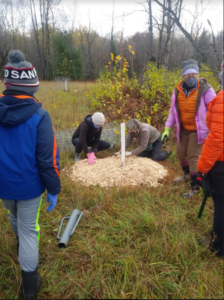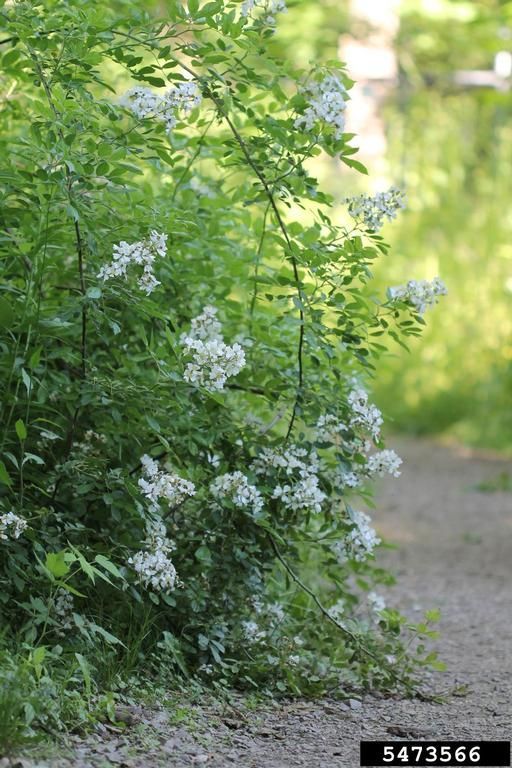The Benefits of Planting Trees in the Fall

OTG volunteers helped plant 90 mature mast-producing trees on public land in Kalkaska in October 2020.
If you’ve been following Michigan United Conservation Clubs’ (MUCC) volunteer habitat improvement program, On the Ground, you’ve noticed that our volunteer events in spring and fall are often dedicated to planting native trees and shrubs. While planting in the spring is common and expected, many volunteers are interested in learning about why we plant trees throughout September and October as well.
One of the key reasons we plant during the cooler and more temperature-stable months of fall is because it provides the trees the opportunity to grow and establish their roots systems before the harsh conditions of summer set in. Additionally, the cooler temperatures of fall are accompanied by increased rainfall, and moisture is critical to the health of a growing and establishing tree. However, planting too late into the fall months is not recommended, as immediate freezing temperatures following the planting may be detrimental to the establishment of the plant and prevent it from surviving the winter.
As the trees begin to grow dormant as winter nears, their top-growth will eventually slow and stop altogether and the tree will utilize its stored energy to survive the winter season. By planting a tree in the fall, the roots have an opportunity to grow and secure nutrients before winter sets in. A better-established root system allows the tree to enter the upcoming growing seasons with more energy that can then go toward top-growth during the warmer months of spring and summer. A healthy root system also enables trees to better endure summer’s variable conditions that include high temperatures and infrequent rainfall.
To learn more about how to properly plant a tree or general tree planting information, please visit the Arbor Day Foundation’s website at arborday.org .
Additionally, to learn more about MUCC’s award-winning On the Ground (OTG) volunteer wildlife habitat improvement program, please visit mucc.org/on-the-ground or contact MUCC Habitat Volunteer Coordinator Makhayla LaButte at mlabutte@mucc.org.
The post The Benefits of Planting Trees in the Fall appeared first on Michigan United Conservation Clubs.
Recent Posts



